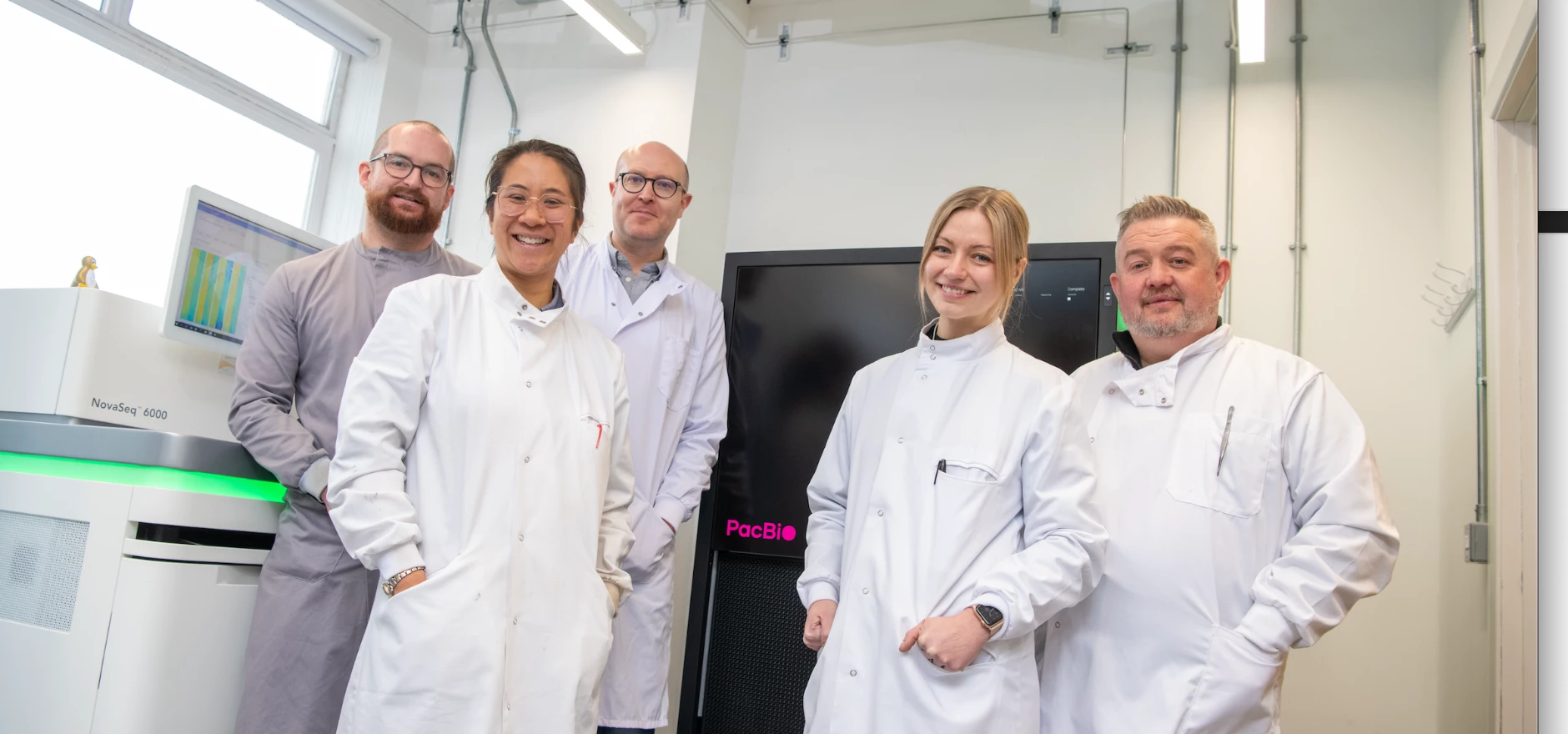
Supercomputer to ‘revolutionise’ research
Northumbria University has unveiled plans to revolutionise its research capabilities with a multi-million-pound investment in cutting-edge computing technology.
The University has partnered with Lenovo and Logicalis to launch Higgs, a high-performance computing (HPC) cluster designed to handle complex scientific datasets with unprecedented speed.
Named after Professor Peter Higgs, a Newcastle-born physicist whose work on the Higgs boson particle transformed modern physics, the cluster will propel research across fields such as genomics, climate science, renewable energy and space technology.
Professor Louise Bracken, pro vice-chancellor (research and knowledge exchange) at Northumbria University, said: “This is a major investment which will continue the sustained growth in our research capabilities at Northumbria and demonstrates our commitment to building capacity to support the world-class research that goes on here.
“This really will be a revolutionary project for many of our researchers, particularly those working with large datasets which need to be processed at high speeds. I’m really pleased we’re working with Lenovo and Logicalis to bring the latest high-performance computing technology to our campuses.
“Given the significance of his contribution to the way we understand the world, we have sought permission from the family of the late Professor Peter Higgs to name the new cluster after the visionary Nobel laureate, whose name lives on through his transformative work.”
The Higgs cluster features Lenovo ThinkSystem hardware, AMD EPYC™ processors and Ubiquity software, which will undergo regular upgrades over the next five years to meet evolving research demands. It will support innovations in satellite technology, DNA sequencing and public health initiatives, ensuring the University remains at the forefront of scientific breakthroughs.
Dr Simon Corbett, chief information officer at Northumbria University, added: “There’s been brilliant collaboration between IT, procurement and academic staff at Northumbria, who have worked closely with Lenovo and Logicalis to co-design the specification of the cluster so that it gives us everything we need to meet current demand, while ensuring it is capable of growing with us over the coming years to meet future requirements.
“The Higgs cluster will include cutting-edge Lenovo HPC hardware to deal with advanced workloads at high speeds, such as the complex calculations, simulations and modelling carried out by research teams at Northumbria. This partnership with Lenovo and Logicalis signals an exciting time in our journey as a research-intensive university.”
Neil Eke, chief executive officer at Logicalis UKI, added: “Logicalis is incredibly proud to partner with Northumbria University and Lenovo in delivering HPC technologies to fuel their cutting-edge research.
“Our team of dedicated HPC experts will be working closely with the University over the next five years, ready to scale the Higgs cluster’s compute performance and capacity as needed to process ever larger datasets at high speed.”
For Professor Darren Smith and Dr Matthew Bashton, whose work in the University’s pioneering NU-OMICS DNA sequencing research facility was used to assist in the national effort to combat COVID-19, the Higgs cluster will help drive forward research breakthroughs.
Dr Bashton added: “All our leading research requires computation and, in my own area of research, I had pushed our existing HPC infrastructure to the absolute limit – particularly during the pandemic when Northumbria University was generating far more genome sequencing data than many nation states in the world.
“The Higgs cluster will give us the bandwidth and computational power to fully utilise the DNA sequencing instrumentation that we have in the NU-OMICS lab and get results faster.
“At the same time, this leading research supports knowledge and teaching at the University, with students benefitting from learning in a research-rich environment.”
Its launch cements the University’s reputation as a leading research-intensive institution, following its 2022 recognition as Times Higher Education’s University of the Year and a ranking of 23rd in the UK for research power.
The new facility also complements the development of the £50 million North East Space Skills and Technology Centre (NESST) at Northumbria University, further enhancing its contributions to the UK’s burgeoning space economy.
Looking to promote your product/service to SME businesses in your region? Find out how Bdaily can help →
Enjoy the read? Get Bdaily delivered.
Sign up to receive our daily bulletin, sent to your inbox, for free.








 Navigating the messy middle of business growth
Navigating the messy middle of business growth
 We must make it easier to hire young people
We must make it easier to hire young people
 Why community-based care is key to NHS' future
Why community-based care is key to NHS' future
 Culture, confidence and creativity in the North East
Culture, confidence and creativity in the North East
 Putting in the groundwork to boost skills
Putting in the groundwork to boost skills
 £100,000 milestone drives forward STEM work
£100,000 milestone drives forward STEM work
 Restoring confidence for the economic road ahead
Restoring confidence for the economic road ahead
 Ready to scale? Buy-and-build offers opportunity
Ready to scale? Buy-and-build offers opportunity
 When will our regional economy grow?
When will our regional economy grow?
 Creating a thriving North East construction sector
Creating a thriving North East construction sector
 Why investors are still backing the North East
Why investors are still backing the North East
 Time to stop risking Britain’s family businesses
Time to stop risking Britain’s family businesses